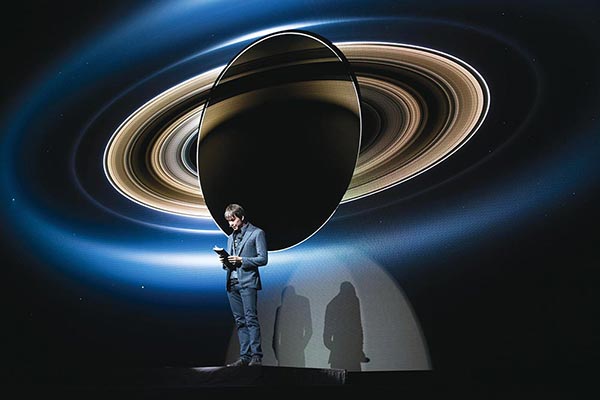Cosmologist Brian Cox on the meaning of life


Was there a defining science-fiction movie for you, like Forbidden Planet or Creature from the Blue Lagoon?
I don't think it's a particularly prescient movie, but one of the earliest great movies I saw was Alien. I saw it in '79 – so I was 11 – in the film club at school. And I was into spaceships at that time. So I watched it and got the full Ridley Scott.
The one thing that always strikes me about science fiction in those days is that they got the space-flight part wrong. For example, even in 2001: A Space Odyssey, they absolutely overestimated space-flight capability and yet they completely underestimated computing power, which is very interesting. In this respect, cinematically, we have always overestimated our spacecraft, but always underestimated our communication devices and computing powers.
In terms of influence, there's Arthur C Clarke's Childhood's End, which I read when I was quite young. It had a massive influence on me. I just re-read it; it's really a great book, but also strange and unusual, and there's one great moment. Although it's set in the mid-21st century, roughly, and the aliens have come down and mankind is about to perish under a different species, there's a part where an astronomer forgets the name of a star and he goes to a library to look it up in a book. And you think to yourself – of all the things that will be missed by the year 2050, will a physical library be one of them?
It seems the Chinese invented and thought of just about everything prior to everybody else. What is China's relationship with cosmology like in history and how much has the West, if ever, borrowed from that?
If you're talking historically, I don't think I know. I would have to research that. Something like cosmology is a well-defined science as the large-scale study of the universe. So I would say there's only one way of looking at the universe. I don't know about it culturally or what Chinese cosmology was to people living in the 15th century. There are different ways of studying nature. What I do know is that in my field today, China is looking at building big accelerators, which is absolutely along the model of what we've been doing. Globally, it's a very exciting time for cosmology and science generally.
Everything cosmological seems like the search for the Holy Grail. But if you had to single out one area that's still most thrilling to consider, what would it be?
Dark energy is the one thing still out there. It tells us there may be something very, very profound about the way that space-time behaves – and why the universe is accelerating at the speed it is.




































